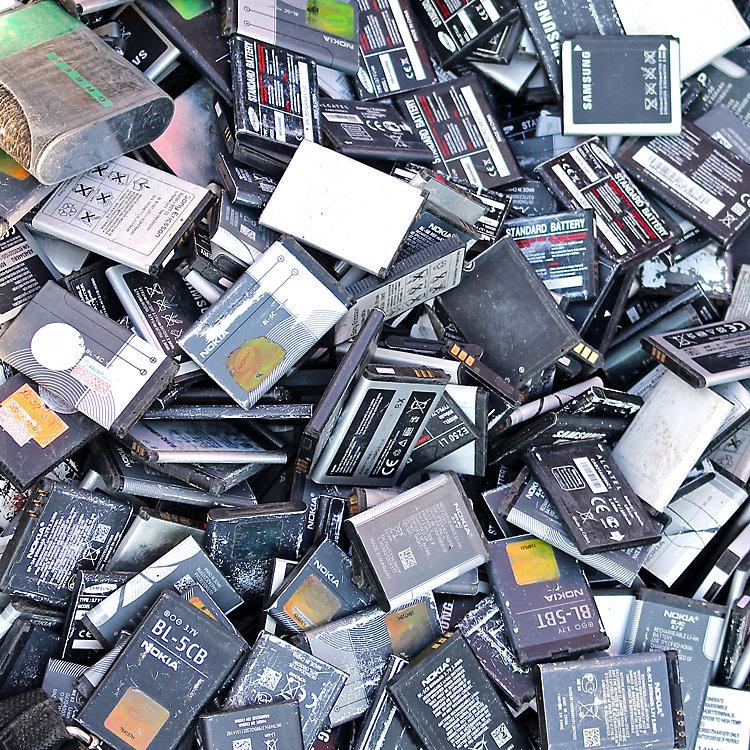Know Your Batteries: 5 Types of Batteries You Can Recycle in SA
In the age of personal electronics and solar-powered gadgets, our reliance on batteries is bigger than ever. Although batteries come in all shapes and sizes, they generally work the same way. Most batteries contain two different types of metal separated by electrolytes. A chemical reaction between these metals sends an electrical charge to the device the battery powers so you can use it without plugging it in.
However, batteries (even rechargeable ones) don’t last forever. Eventually, the metals degrade, and you have to throw them away. Battery recycling has been a part of South African EPR legislation since 2023.
Five Types of Batteries You Should Recycle
In South Africa, all producers, importers, and resellers of portable batteries must comply with national recycling laws. The government outlines the following types of batteries in the legislation:
- Alkaline and zinc-carbon batteries
Most of the everyday batteries we buy for household gadgets are alkaline or zinc-carbon batteries. They are the cheapest type out there and don’t always last very long. These are the batteries you find in children’s toys, remote controls, clocks, Christmas lights, and torches.
Zinc-carbon batteries use an electrolyte called ammonium chloride to transfer energy through the cell. Alkaline batteries use potassium hydroxide instead, which helps them last slightly longer than their zinc-carbon cousins. Neither type is rechargeable, and eventually, you will have to recycle them.
- Primary (single-use) lithium batteries
The term “primary battery” means it is not rechargeable. Lithium batteries are not the same as the lithium-ion (Li-ion) batteries you find in cell phones and laptops. They look like regular alkaline/zinc-carbon batteries but are made of different materials.
A single-use lithium battery comes in AA, AAA, and coin sizes. It’s usually more expensive than an alkaline alternative, but it can last much longer. These high-performance household batteries are best for gadgets that need power for long periods, like gaming controllers or alarm systems.
- Nickel-metal-hydride (Ni-MH) batteries
Have you ever bought a pack of rechargeable AA batteries for your TV remote or computer mouse? Chances are, they are nickel-metal-hydride batteries. Marketed as “greener” than disposables, these batteries can be charged hundreds of times before you have to throw them away. They are long-lasting and ideal for gadgets with high power demands, like cameras or GPS tracking devices.
To recharge them when they die, you’ll need a special battery charger that can fit AA or AAA batteries. Although more expensive, Ni-MH batteries can last many years and save you a lot of money in the long run. However, they contain toxic metals and must be recycled.
- Silver-oxide batteries
Most analogue wrist watches rely on silver-oxide batteries. Also known as button cell batteries, they are usually very small because of the high cost of silver. This type of battery contains silver-oxide and zinc, plus an alkaline electrolyte solution to separate the metals.
Silver-oxide batteries are known for their ability to maintain a constant charge. That means they won’t deteriorate and slowly die, but rather stop working suddenly. This feature is beneficial in a watch because an old battery will make it run faster or slower and lose track of time.
- Zinc-air batteries/air-depolarised batteries
As the name suggests, zinc-air batteries only work when exposed to oxygen in the air. Oxygen seeps into the battery and reacts with the metal, causing it to release an electrical charge. Hearing aids and other medical devices often rely on zinc-air batteries.
They are relatively inexpensive, however, they don’t last very long. Once the battery is exposed to air, it starts to degrade, losing its charge capacity and shortening its life. The tiny batteries covered by a plastic strip that you find in fairy lights and other cheap gadgets are most likely zinc-air batteries.
How Does Battery Recycling Work?
Battery recycling is well-established in most countries because it can be highly lucrative. The metal collected from recycling batteries is valuable and can be used to make all kinds of new products. Although each type of battery has slightly different recycling requirements, they all generally go through one or all of the following processes:
- Mechanical separation – shredding/separating different types of materials found in the batteries.
- Neutralising acids – recyclers add chemicals to the mix to make electrolyte solutions less hazardous to the environment.
- Smelting – melting a mix of different metals at high temperatures so you can separate them.
We can use the materials we recover from recycled batteries to make new batteries, electrical components, agricultural products, etc. Recycling batteries is important because they are made of non-renewable materials that shouldn’t go to waste.
Where to Recycle Batteries in South Africa
According to our new EPR laws, shops that sell batteries or products that use batteries should be helping their customers recycle them. One way to do this is through take-back schemes. A take-back scheme is when retailers encourage people to bring end-of-life products (like dead batteries) back to the shop, sometimes in exchange for a reward.
You can drop your batteries off for recycling at most Makro, Pick n Pay, Woolworths, and Leroy Merlin branches nationwide. Just look for the collection boxes near the door and drop them in–easy peasy. Click here for more info about EPR and battery recycling in SA.
SOURCES:
- https://www.lowes.com/n/buying-guide/alkaline-vs-lithium-batteries
- https://data.energizer.com/pdfs/nickelmetalhydride_appman.pdf
- https://www.murata.com/en-eu/products/batteries/micro/overview/lineup/sr
- https://micro.magnet.fsu.edu/electromag/electricity/batteries/zincair.html
- https://www.urbanaillinois.us/sites/default/files/attachments/battery-recycling-processes.pdf
- https://www.itweb.co.za/article/joint-venture-to-build-green-battery-recycling-facilities-in-sa/KzQenvjyKKZqZd2r

